One Year Long Mission Of Research Vessel Polarstern Revealed Ice Melts Faster Than Ever In Central Arctic
Scientists on the Polarstern research vessel who were involved in the largest polar expedition called MOSAiC that took place in the central Arctic have claimed that ice is melting faster than ever before in history.
Physicists from the Alfred Wegener Institute (AWI) located in the city of Bremerhaven in Germany presented new evidence that the expansion of the ice in the Arctic Ocean in the summer of 2020 was only half as large as it was decades ago.
The international team of scientists were on board the research icebreaker Polarstern that had a central role in the Multidisciplinary drifting Observatory for the Study of Arctic Climate (MOSAiC) expedition which was a one-year-long study in the Central Arctic and lasted from September 2019 until October 2020 and they have just presented their findings now.
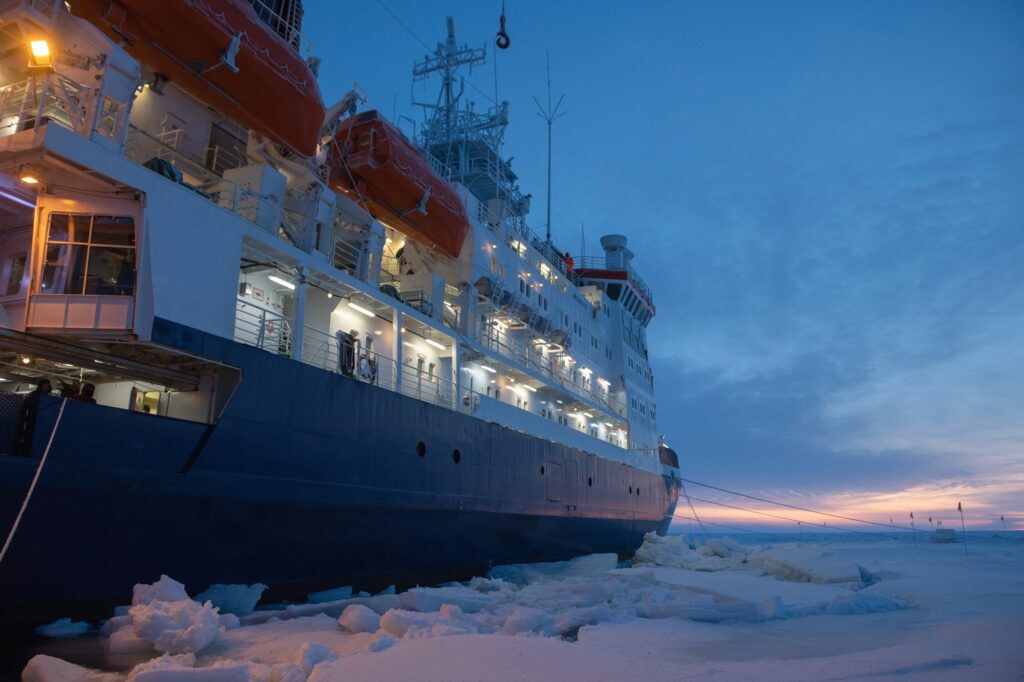
In addition, the ship RV Polarstern (‘polestar’ in German) that has recently set off for the Arctic where over 50 scientists and 40 crew members will also investigate the effects of environmental change in the deep-sea’s ecosystem (24th May).
Eight months after the end of the MOSAiC mission chief scientist Markus Rex from the Alfred Wegener Institute (AWI) said on Tuesday that the evaluated ice was only half as thick as it was almost 130 years ago.
He added: “The ocean managed to absorb and store large amounts of heat during the ice-free time in the summer.”
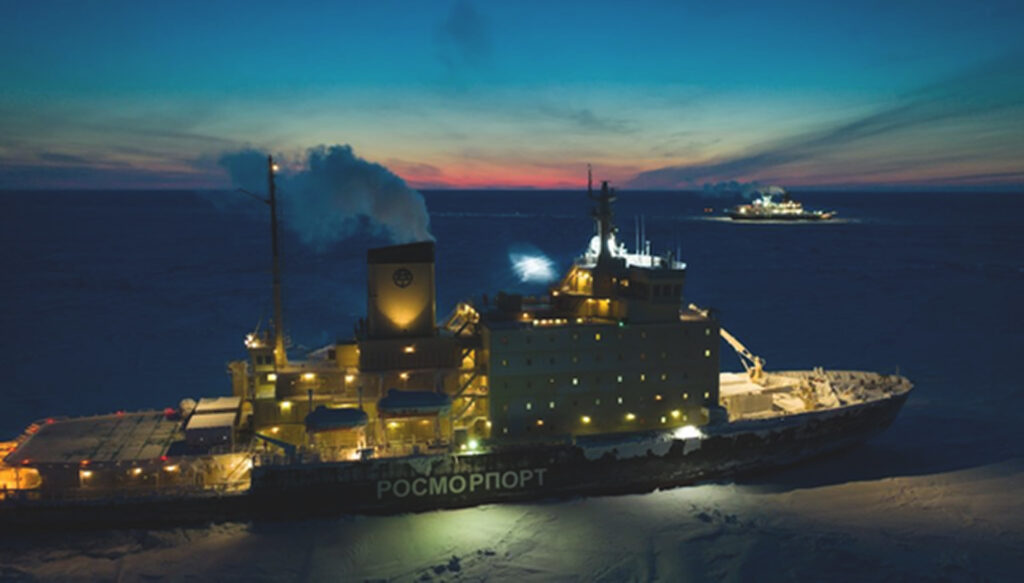
Rex revealed that more than 150 terabytes of data and tens of thousands of samples of ice, snow, water and air had been brought home for further analysis.
The scientists hope that the obtained data will provide important insights into the Arctic Ocean – and global climate change.
The international team of scientists published two news studies and according to the first one warmer water masses have hindered ice growth in the Barents and Kara seas for years.
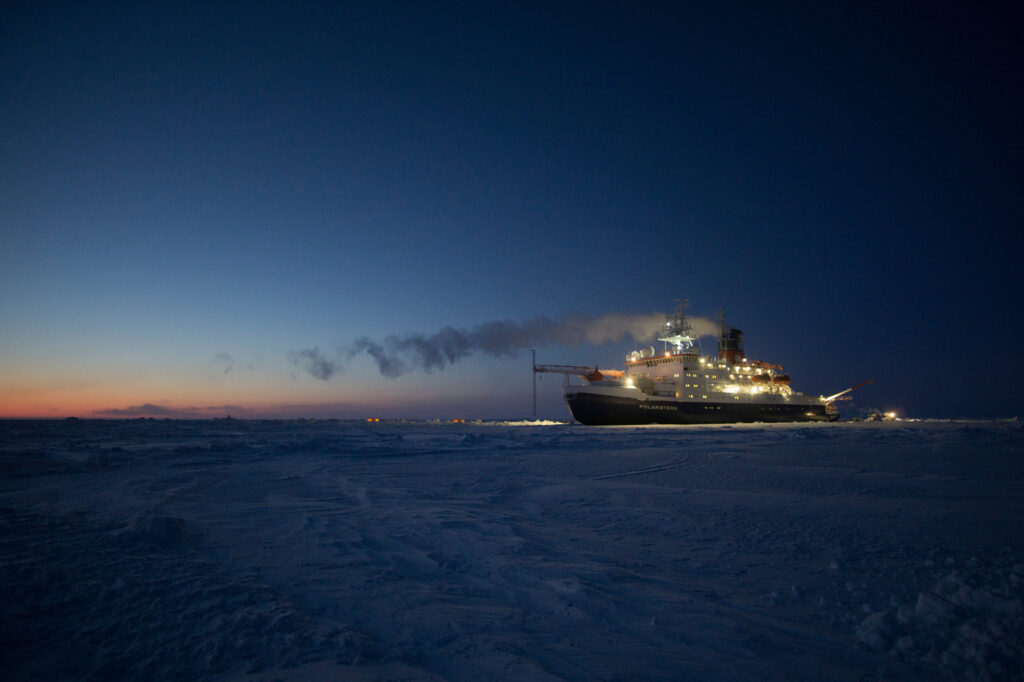
Sea-ice physicists Dr Robert Ricker explained: “Young, thin ice conducts heat significantly better than thick ice and therefore protects the sea less effectively from cooling. At the same time, more water freezes on the bottom of the ice, which is why thin ice grows more quickly than thick ice.
We analysed satellite data from the ESA Climate Change Initiative and found that in the period from 2002 to 2019, less and less sea ice formed, especially in the Barents Sea and Kara Sea. If new ice does form, it’s significantly thinner than before.”
In the second study the scientists demonstrated that rising ocean heat is also slowing ice formation near the Laptev Sea in the Arctic Ocean which can have a long-term impact on the ice thickness and the effects were visible within a year.
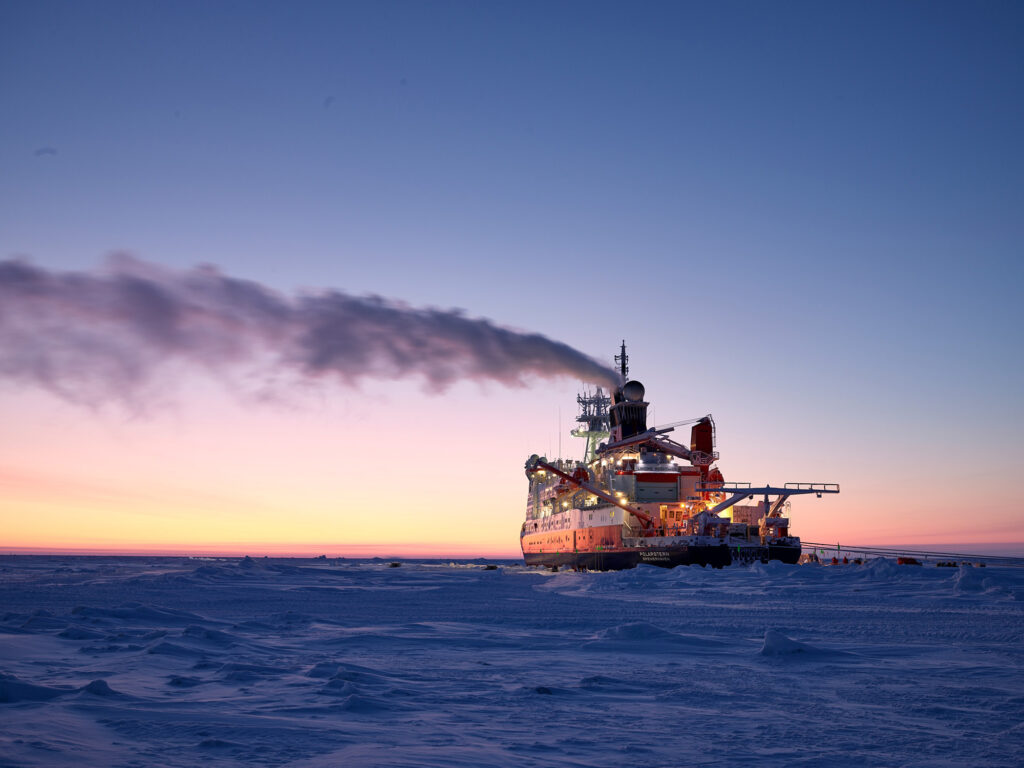
Experts from the University of Alaska Fairbanks recorded the unusually high temperatures in the waters north of the Laptev Sea from January to May 2015 and found out that the heat rose from the depths with Atlantic water masses, and slowed the winter ice growth.
According to expert Jakob Belter the two new studies highlight the importance of long-term datasets for sea-ice research in the Arctic.
He said: “If we are to understand the changes in the Arctic sea ice, long-term observations of ice thickness using satellites and aircraft are vital. Combined with modelling data they provide an overall picture that is sufficiently detailed to allow us to identify the key processes in the changing Arctic.”
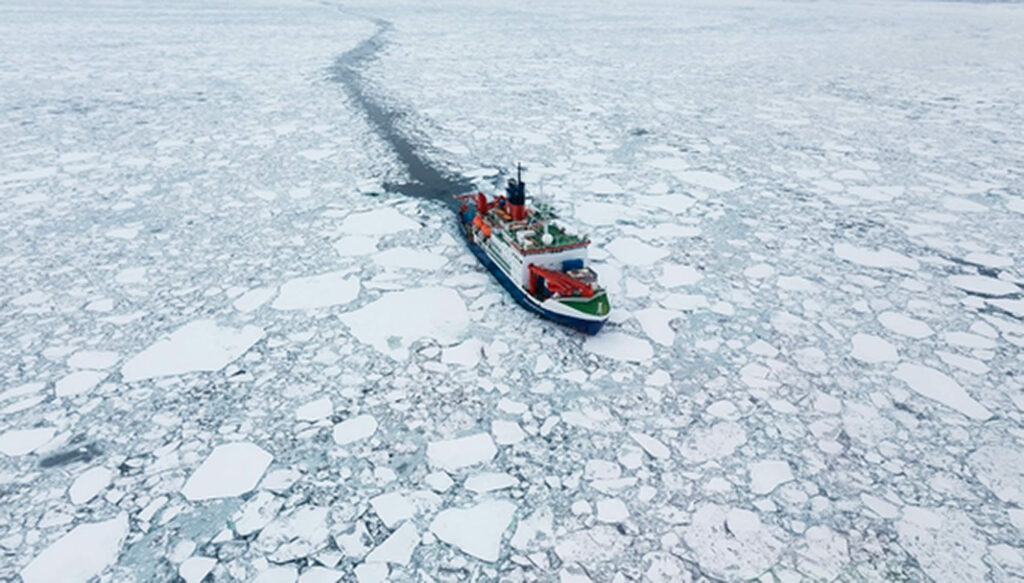
Rex emphasised that evaluations within the next few years will show whether the year-round Arctic sea ice can still be saved.
He warned that if the Arctic was to become ice-free over the summer it could trigger “uncontrolled floods” which could increase global warming and pointed out that reducing greenhouse gas emissions is crucial to achieve desired climate targets.
One of the Polarstern scientists Stefanie Arndt said: “Triggering of the tipping point, which will lead to the disappearance of the summer sea ice in the Arctic, is imminent. We will possibly be the last generation to experience an ice-covered Arctic in summer.”


